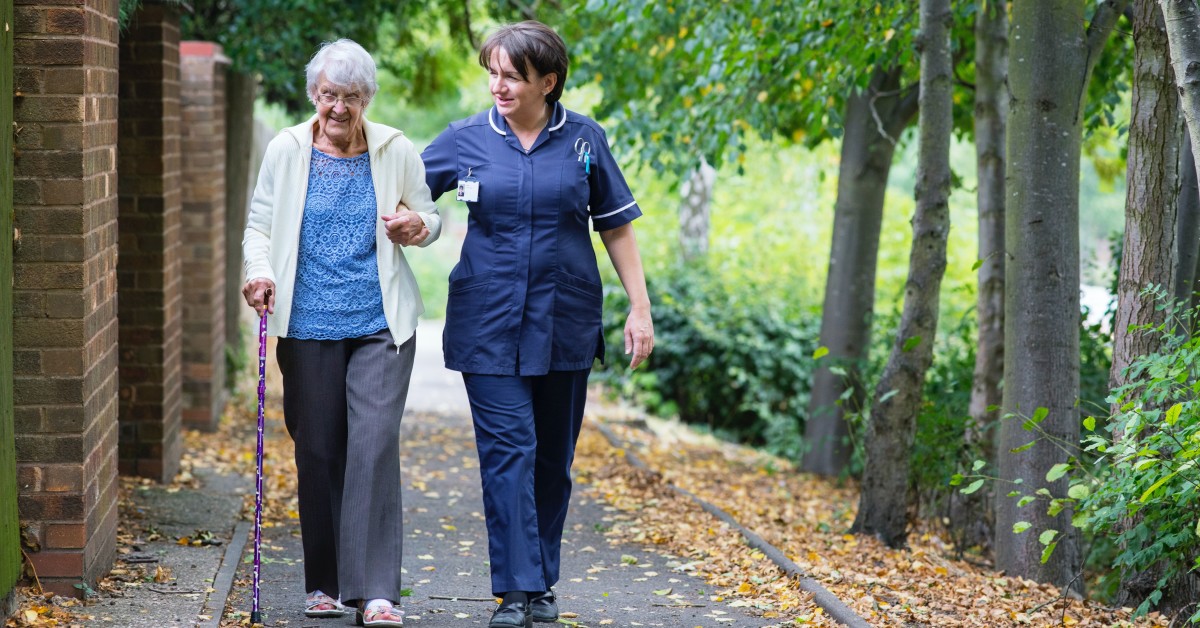
How Much Money Will I Make With a Doctor of Physical Therapy (DPT) Degree?
Physical therapists are in high demand and the field is [...]

Doctors and nurses aren’t the only medical professionals who treat patients. If you’re interested in providing healthcare but don’t want to go to medical school (or nursing school, for that matter), you still have options. One of the best-paid—and least well-known—hands-on jobs in healthcare is physician assistant (PA).
PAs diagnose, monitor, and treat patients as doctors do. They are technically classified as medical support professionals, and their work is overseen by MDs. Even so, many physician assistants work in relative autonomy. While physician assistants can’t perform surgery, they can assist during operations. In fact, PAs can be found in almost every medical specialty area, and, unlike doctors, physician assistants can easily move between specialties.
“It’s great to be able to work in primary care for a few years and then switch to a job in emergency,” Paul Kubin, publisher of Inside PA Training wrote on the site’s blog. “It leaves you open to more employment opportunities, and it’s one reason PAs are so sought-after.”
If you’re thinking about becoming a physician assistant and you’re in Pennsylvania (or looking to relocate), you’re in luck. There are 23 physician assistant programs in Pennsylvania accredited by the Accreditation Review Commission on Education for the Physician Assistant (ARC-PA). Many of these are at colleges and universities known for their high-quality medical programs.
In this article, we showcase some of the strongest physician assistant programs in Pennsylvania and cover the following:
Physician assistants must graduate from an ARC-PA-accredited PA master’s program before they can sit for the Physician Assistant National Certifying Exam (PANCE). These programs go by a variety of names. Some PAs hold the Master of Physician Assistant Studies (MPAS). Others earn the Master of Science in Physician Assistant Studies, the Master of Health Sciences (MHS) in Physician Assistant Studies, or the Master of Clinical Health Services (MCHS). Most PA master’s degree programs take between 22 and 33 months to complete. Core coursework covers topics like:
MPAS students only spend part of their time in the classroom, however. In its PA master’s program guide, the University of Pittsburgh‘s School of Health and Rehabilitation Sciences describes the many “out-of-the-classroom learning opportunities, case-based individual and group activities, and hands-on skills labs” students complete, along with rotations in a variety of clinical settings, including surgical centers, doctor’s offices, and long-term care facilities. PA students must complete more than 2,000 hours of clinical rotations before they graduate.
Don’t make the mistake of thinking that master’s programs for PAs are like medical school, but easier. Enrolling in an MPAS program requires an intense commitment. The years you spend pursuing an MS in PA Studies will probably be some of your most challenging years.
Competition for spots in top physician assistant programs in Pennsylvania is fierce. More applicants vie for the same number of spots year after year, and schools are leveling up their GPA and professional experience requirements as a result.
According to data collected by the Physician Assistant Education Association (PAEA), only about 31 percent of the nearly 27,000 people who applied to PA programs in 2016/2017 were accepted. Most master’s programs for physician assistants admit around six percent of applicants, but some admit less than one percent. For perspective, Pennsylvania State University – College of Medicine received 5,204 applications, interviewed 123 applicants, and admitted just 30 students in 2020. That’s just over 0.5 percent.
Physician assistant programs in Pennsylvania and elsewhere typically require applicants to hold a bachelor’s degree. While many schools don’t specify a specific major, they typically require certain undergraduate courses. The University of Pittsburgh, for instance, requires one or more classes in:
The most competitive programs look for applicants with 500-2,000 hours of related healthcare experience. Some even require time spent caring for patients in a healthcare setting. Many MPAS applicants have worked in roles like:
Some aspiring PAs even take a gap year to make sure they meet the required 1,000+ hours of healthcare experience or patient-care experience and have time to adequately prepare for the GRE.
This program, administered by the Department of Medical Science, boasts an average PANCE pass rate of 100 percent. Students can pursue the school’s Master of Medical Science—Physician Assistant degree plus a Master of Public Health (MPH) if they choose the dual-degree option. Technology figures prominently in this program. Arcadia University uses advanced 3D visualization tables for anatomy in addition to human cadavers, and the curriculum includes clinical simulation experiences designed to hone clinical skills.
The university’s School of Health Sciences has a reputation for training healthcare professionals with advanced skills. The program’s mission is “to strive for excellence in physician assistant education” to produce “graduates known as outstanding clinicians in the community and leaders in the profession.” The PA curriculum is built around Problem-Based Learning (PBL) and designed to provide as many hands-on experiences and real-world patient interactions as possible. Students rotate throughout clinical settings in the United States and internationally in specialty areas like family practice, internal medicine, pediatrics, emergency medicine, surgery, and women’s health.
DeSales University’s MSPAS program takes place in some of the most technologically advanced facilities in the US, with simulation labs, anatomy labs, and standardized patient labs. The curriculum focuses on experiential learning and emphasizes compassionate care. The school offers two master’s program pathways: a traditional master’s pathway for graduate students, and 3+2 and 4+2 options that allow incoming freshmen to earn a bachelor’s degree and an MSPAS in less time.
Unsurprisingly, the Drexel University Physician Assistant Program (administered through the College of Nursing and Health Professions) produces a PANCE pass rate that exceeds the national average. One of the highlights of this school’s MPAS program is that all students must complete clinical experiences in underserved rural and urban areas. More than 80 percent of program graduates pursue careers in primary care settings.
This school offers a faster route to becoming a physician assistant with its unique five-year entry-level PA program. Incoming freshmen can earn both a Bachelor of Science in Health Sciences degree and a Master of Physician Assistant Science degree in as little as five years. The program doesn’t sacrifice quality for speed, however. As the program guide puts it, Gannon students “are prepared to become ethical, professional, and high-quality health care providers who are socially responsible leaders in their discipline and community.”
One of the top physician assistant programs in the country, LHU’s 24-month PA curriculum is designed around a medical model that emphasizes basic sciences, clinical sciences, and critical thinking skills. Students at four locations around Pennsylvania earn both a Masters of Health Science Degree and a certificate as a Physician Assistant. The program emphasizes the care of underserved populations, has small class sizes, and offers students a variety of clinical experiences in settings like surgery, pediatrics, internal medicine, and OB/GYN. The program PANCE pass rate exceeds 94 percent.
The College of Medicine at Penn State emphasizes an evidence-based approach to healthcare that is compassionate, attentive, committed, competent, and above all, accountable. The PA program is one of the strongest in the US when it comes to student outcomes. It boasts a 100 percent first-time pass rate in all graduating classes since the program was launched in 2014 and a 100 percent job placement rate within four months of graduation. Students receive robust support in this program; 98 percent of enrollees graduate.
This school’s PA program has a lot in common with its DO program in that it aims to provide students with a holistic view of patient care. All faculty members in the physician assistant master’s program are, or have been, practicing physician assistants. Program graduates have exceptionally high PANCE pass rates and are highly sought-after. About half pursue active job leads before graduation.
Saint Francis University has two PA program pathways—a traditional track for graduate students and an entry-level five-year track. Most students in this program enter through the accelerated five-year track. Students in both programs can take advantage of national and international clinical rotation opportunities, an on-site human cadaver lab, and on- and off-campus events like free clinics, health fairs, and medical mission trips. The Saint Frances University MPAS program has a 100 percent first-time PANCE pass rate.
Clinical competency, respect for diversity, and ethical patient-centered care are at the forefront of this entry-level physician assistant program curriculum. U.S. News and World Report ranks it as one of the best in the country and the best in southwestern Pennsylvania. Students entering the program as freshmen earn a bachelor’s degree and a master’s degree in just five years and have access to state-of-the-art laboratory and clinical learning facilities in the Boyle Health Sciences Center. Additionally, Seton Hill has a Physician Assistant Student Society open to both undergraduate and graduate students.
Before enrolling in a PA program that meets ARC-PA standards, aspiring physician assistants must earn a four-year bachelor’s degree. Meeting the work requirements of most programs can take a year at minimum, though most aspiring PAs put in roughly three years of work before applying to MPAS programs. Most full-time PA programs take between two years and 27 months to complete (including the clinical practice component). Part-time Master of Physician Assistant Studies programs can last for three years or more, depending on how they’re structured. Some people spend six months after graduating from a master’s degree program studying for the PANCE. All told, it takes about a decade to become a full-fledged physician assistant.
Physician assistants make good money. Most PAs earn more than $112,000 annually, and the highest-paid 10 percent earn more than $157,000. Physician assistants who pursue additional certifications or education in specialty areas like psychiatry, pediatrics, or emergency medicine can earn even more. Some PAs make the leap out of clinical work and into healthcare administration, which can be an equally lucrative career pathway.
Money isn’t the only reason to become a physician assistant, however. According to the US Bureau of Labor Statistics, PAs are in the seventh-fastest growing profession in the United States. This is a field in which people seldom stay unemployed for long. For those enrolled in the top MPAS programs, job offers may even start pouring in before graduation day.
(Last Updated on February 26, 2024)
Questions or feedback? Email editor@noodle.com

Physical therapists are in high demand and the field is [...]

It's difficult to keep track of everything you can do [...]

University of Pittsburgh ranks among the nation's top medical education [...]

Registered nurses deserve some support, stat. That's where a nursing [...]

If you're looking for a nursing career with a lot [...]
Categorized as: Physicians Assistant Studies, Nursing & Healthcare